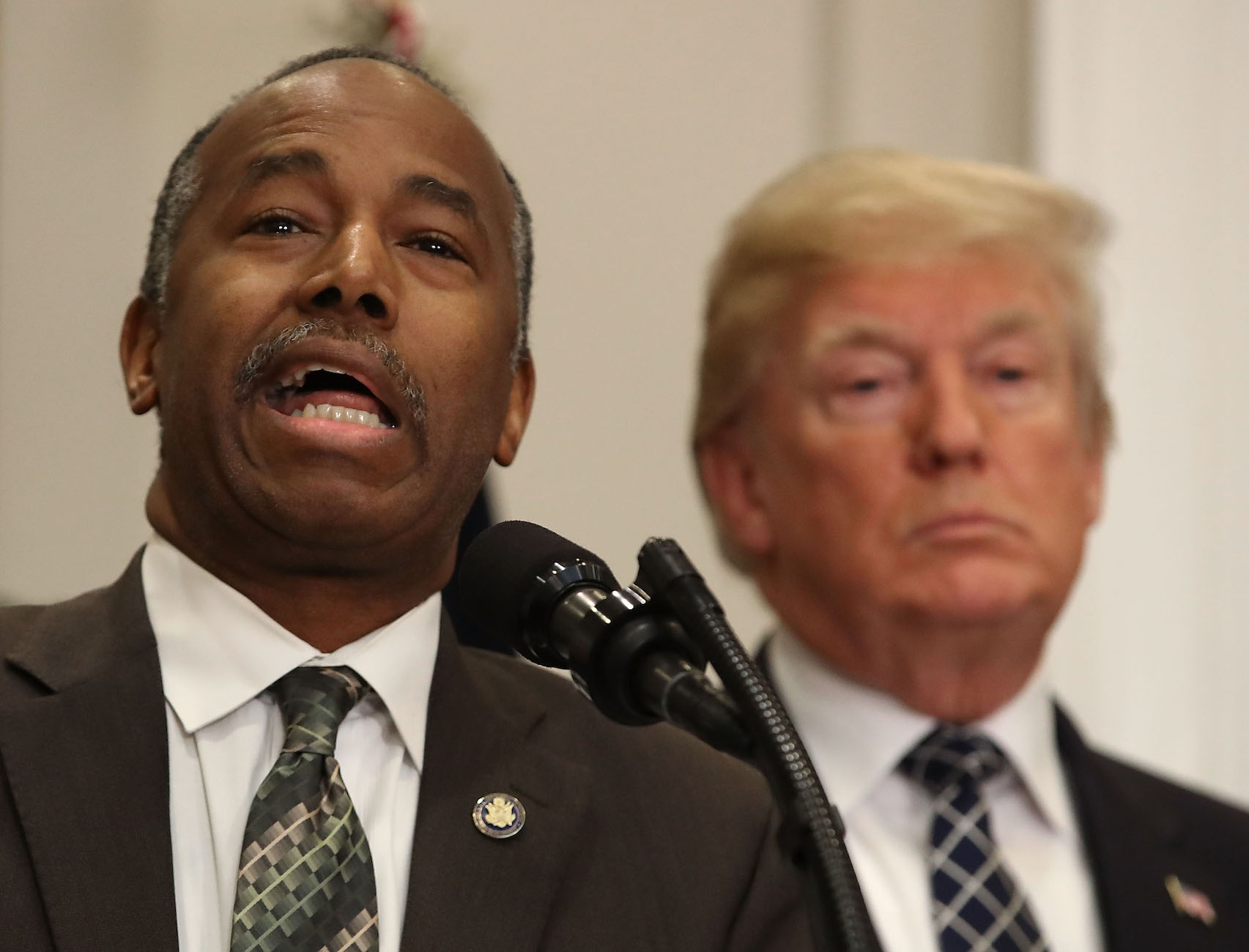The Trump Administration Is Pushing To Make It Harder For Trans People To Seek Shelter During The Pandemic
The Trump administration mishandled COVID-19, creating conditions that left transgender people even more vulnerable to housing instability than before. Now it’s pushing for a rule change that would allow homeless shelters to discriminate against trans people.

This commentary is part of The Appeal’s collection of opinion and analysis.
Few experiences are more commonly shared among transgender people than a lack of stable housing. Nearly one in three transgender Americans have been homeless in their lifetime and one in eight have been homeless in just the last year, according to a 2015 survey. And not having a place to live leaves individuals more vulnerable to the harassment, abuse and violence that characterizes so much of life as a transgender person in the U.S.
While trans people—and trans people of color in particular—needed no reminder of the link between stable housing and one’s own physical safety, the coronavirus pandemic has made that link all the more obvious. As a wave of evictions threatens renters and families nationwide, the Trump administration is working to deny trans people access to life-saving programs while increasing their chances for harassment, assault, and murder.
The U.S. Department of Housing and Urban Development is pushing to roll back legal protections barring shelter programs that accept HUD grants from discriminating on the basis of gender identity or expression. First implemented in 2012 and improved in 2016, the Equal Access Rule was welcomed by trans and housing advocates alike and continues to enjoy widespread support among domestic and sexual violence prevention programs.
Despite this consensus, HUD Secretary Ben Carson is proposing to roll back the EAR—a move advocates and service providers are already opposing through public comments. The timing of this proposed rollback is especially egregious, as COVID-19 is continuing to wreak havoc on the nation’s health and economic systems. If trans people cannot access shelter and services, it will become much harder for them to get the resources they need to stay safe and socially distance during this public health emergency.
Carson claims the move is designed to protect cisgender women from, as he put it last fall, “big, hairy men” trying to infiltrate women’s shelters and harm their occupants. It is a retread of the long-debunked “bathroom predator” myths weaponized against the fight for gender justice for decades, from the Equal Rights Amendment to the Equality Act, while relying on retrograde gender standards. HUD’s proposal even includes a guide for judging a woman to be trans by her height or the presence of facial hair.
As every bit of research on the matter illustrates, there is zero evidence that policies inclusive of transgender people pose risks to anyone’s safety, and they benefit a population facing well-documented and, by some measures, increasing threats. Even HUD itself is forced to admit it “is not aware of data suggesting that transgender individuals pose an inherent risk to [cisgender] women.”
By chasing hypotheticals, HUD is prioritizing imagined threats to cisgender women over the very real threats the housing crisis poses for trans people. The number of reported killings of transgender people in 2020—at least 28, as of this writing—has already surpassed the total for all of 2019. Many of the transgender women of color in that tally were experiencing homelessness at the time of their deaths.
This includes Neulisa Luciano Ruiz, murdered in Toa Baja, Puerto Rico in February after using a women’s restroom. Her death, and the deaths of many others, exemplify the false trade-off Carson and the Trump administration are pursuing, all while ignoring the systemic causes of violence faced by all women. As feminist writer Rebecca Solnit recently put it, “When there is so much real violence against women, it’s a sad waste of time to focus on imaginary maybe presumably it-could-theoretically-happen violence.”
The role of inclusive shelters in preventing actual violence is abundantly clear. Without proper access to shelter services, trans people are at a higher risk of remaining on the streets—facing higher risks for violence and poor health outcomes such as HIV. As new data from the National Alliance to End Homelessness reveals, unsheltered trans people are ten times more likely than their sheltered peers to be funneled into a prison system that is indifferent at best to the grotesque and frequent sexual trauma trans people face within its walls.
HUD should be directly engaged with the most vulnerable among us to ensure they have safe, equitable access to these and all programs our government provides. Rolling back the Equal Access Rule is yet another one of the many attempts by this administration to threaten the health, wellbeing, and human rights of the transgender community. This proposed rule change would have been heartless at any time; going forward with it now will increase violence against vulnerable people, which HUD claims to want to prevent. The administration should be trying to protect the trans community, rather than inflict pain during a moment of vulnerability that it had a hand in creating, through its own mishandling of COVID-19.
Sarah Saadian is the vice president of public policy for the National Low Income Housing Coalition (NLIHC) and oversees NLIHC’s broad congressional portfolio. Gillian Branstetter is a writer, activist, and spokesperson for the National Women’s Law Center. A cofounder of the Transgender Journalists Association, her work has appeared in CNN, The Atlantic, Newsweek, Out Magazine and more.
